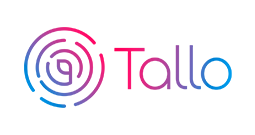Summary: Digging into company’s background and online reviews are two ways to get a whole picture about whether an employer is the right fit for your career.
Get to Know a Prospective Employer
When you’re searching for a job, it’s easy to get swept up in the job description, role, location, and perks. But there’s another qualifying essential to consider: the company’s background and approach to caring for their team members (e.g., company culture, mission and vision, employee welfare and benefits, work-life balance, etc.). Here’s how you can sleuth out if the company is a good fit for you.
1. Investigate the Company’s Website
One of the first places to start is with the company’s website. If available, read the “About Us” section on the website, as that may give you a sense of how the company conducts business and defines its current mission. Look for the overall health and direction of the organization and any red flags that would cause you to have questions during your interview or before you accept an offer. Even the fact that the website hasn’t been updated in recent years could be an indication of the company’s overall health.
The company’s website should also give you basic facts about its size, number of employees, products or clients, and history. Is this a company with a long history or a start-up? All the information you gather serves a dual purpose. It is helpful for you to evaluate whether the company is right for you, but it also gives you valuable information for the job interview.
2. What Does Social Media Say
Check out the company’s social media accounts. What do clients or customers say about them if they are in a service-type industry? Are reviews positive or negative? You can gain insight into the company’s health and professional growth from search engine results and postings on social platforms. Unless the company is going through a major expansion, a large percentage of job openings may also be a red flag.
3. Research Additional Websites
Check also the Better Business Bureau’s rating of this company. The Better Business Bureau, in the state of the company’s corporate office, will indicate if the company has received any consumer complaints, the amount and type of complaints, and give the company a rating. It will also show whether the company seeks to resolve customer or product complaints.
The U.S. Bureau of Labor Statistics has compiled a list of statistics by industry that you can access. Using the Bureau of Labor Statistics data by area or location can give you a sense of median wages for your career field, industry standards, safety, and typical work week hours.
Finally, check out industry competitors’ websites in the same area or region. Do salaries, working conditions, and benefits seem to compare favorably? Are work hours similar? Companies should be reasonably competitive if they want to attract the best employees for the job.
4. Know the Employee Benefits
Research employee benefits of the company—a company usually furnishes this information on its website about healthcare benefits, stock options, flexible work schedules, remote options, retirement benefits, or other employee perks. Some of this information may also be listed in the job application or by looking at the company’s profile and reviews on various job search sites. Evaluate whether the company provides the benefit options that work for you and your job role.
Step 5. Be Strategic About What You Know
While the information gleaned from your search will be beneficial in your interview, be strategic about what and how you share. You may be tempted to share all of your newly found information during an interview, but share only that which would benefit your position. Use the information you found to connect your skills, abilities, and previous experiences to the company’s job description, professional goals, culture, and vision.
At the end of an interview, the interviewer will typically ask if you have any questions. If there have been some questions raised during your previous research, this gives you the opportunity to ask them. Be diplomatic in your questioning, however. Rather than saying, “It seems your wages are lower than Company XYZ’s wages,” instead try, “Could you explain your company’s salary structure a little further?”
Is it a Match?
Taking the time to research a prospective employer is valuable in a variety of ways. It can help you develop knowledge of an organization and better prepare you for an interview. If you accept the job, your research gives you an advantage with onboarding and understanding the company’s basic operations. It also allows you to ask informed questions to help you make a more knowledgeable job decision. Most of all, you can determine if that employer or company is a good match for you!











